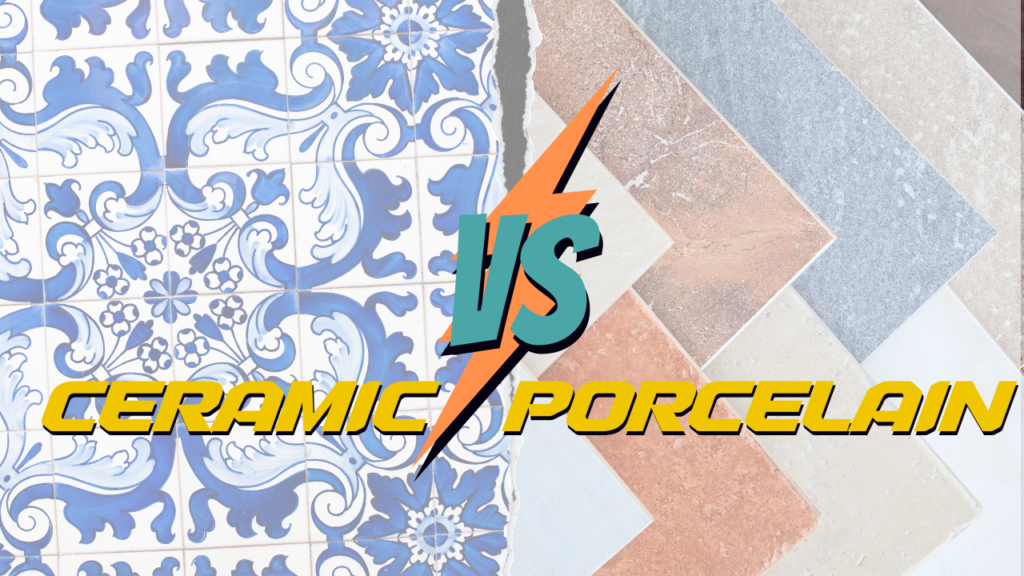Porcelain vs. Ceramic Tile: What’s the Difference?

When selecting tiles for your home, understanding the distinctions between porcelain and ceramic tiles is crucial. Both materials offer unique advantages, and choosing the right one depends on your specific needs and preferences.
Composition and Manufacturing
Porcelain tiles are crafted from refined clay and fired at higher temperatures, resulting in a denser and more durable product. This process makes them less porous and highly resistant to moisture. In contrast, ceramic tiles are made from a mix of clays and fired at lower temperatures, making them lighter and more porous.
Durability and Water Resistance
Due to their density, porcelain tiles are exceptionally durable and less prone to chipping and scratching. They are also highly resistant to water, making them suitable for bathrooms, kitchens, and outdoor areas. Ceramic tiles, while durable, are more susceptible to wear and have a higher water absorption rate, making them better suited for indoor, low-traffic areas.
Design and Aesthetics
Both porcelain and ceramic tiles offer a wide range of colors, patterns, and finishes. Porcelain tiles can mimic natural materials like stone or wood, providing a high-end look. Ceramic tiles often come in vibrant colors and intricate designs, offering versatility in decorative applications.
Cost and Installation
Ceramic tiles are generally more affordable and easier to cut and install, making them a popular choice for DIY projects. Porcelain tiles, being denser and harder, may require professional installation and specialized tools, which can increase the overall cost.
Maintenance
Both types of tiles are relatively easy to maintain. Porcelain’s low porosity makes it more stain-resistant and easier to clean, while ceramic tiles may require more frequent sealing to prevent moisture absorption and staining.
Conclusion
Choosing between porcelain and ceramic tiles depends on your specific needs, budget, and the intended use of the space. For high-traffic or moisture-prone areas, porcelain tiles offer superior durability and water resistance. For decorative purposes or areas with less wear, ceramic tiles provide a cost-effective and versatile option.
